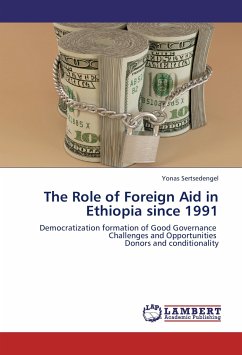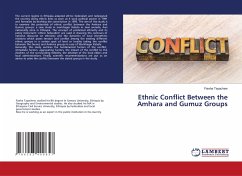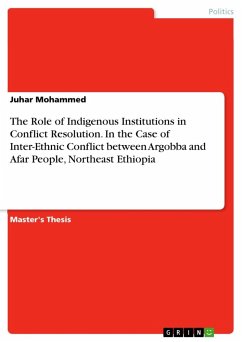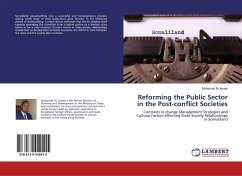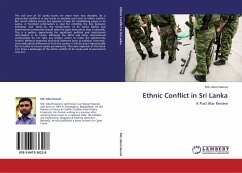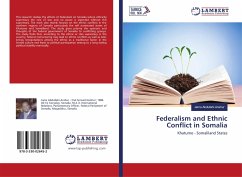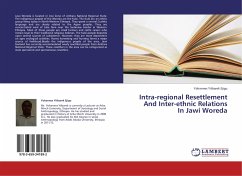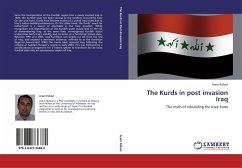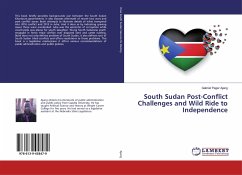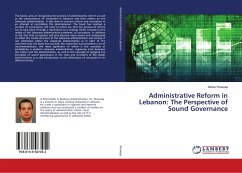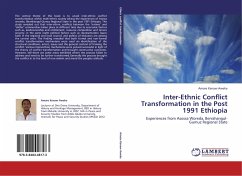
Inter-Ethnic Conflict Transformation in the Post 1991 Ethiopia
Experiences from Asossa Woreda, Benishangul-Gumuz Regional State
Versandkostenfrei!
Versandfertig in 6-10 Tagen
32,99 €
inkl. MwSt.

PAYBACK Punkte
16 °P sammeln!
The central theme of this book is to unveil inter-ethnic conflict transformation within multi-ethnic society taking the experiences of Asossa woreda, Benishangul-Gumuz Regional State in the post 1991 Ethiopia. The study revealed out that inter-ethnic conflicts between the "natives" and "settler" communities taken place at different time due to economic factors such as, landownership and entitlement, resource competition and tenure security. in the same realm political factors such as representation issues both in the regional and local council, and politics of exclusion are among the central o...
The central theme of this book is to unveil inter-ethnic conflict transformation within multi-ethnic society taking the experiences of Asossa woreda, Benishangul-Gumuz Regional State in the post 1991 Ethiopia. The study revealed out that inter-ethnic conflicts between the "natives" and "settler" communities taken place at different time due to economic factors such as, landownership and entitlement, resource competition and tenure security. in the same realm political factors such as representation issues both in the regional and local council, and politics of exclusion are among the central ones. The finding revealed that both formal and non-formal conflict transformation mechanisms were used via identification of the structural conditions, actors, issues and the general context of framing the conflict. Various intervention mechanisms were proved successful in light of the theory of conflict transformation and brought constructive outcomes. However, still there are some areas exhibited where the process failed to address and need to be further transformed.Generally the process brought the conflict in to the level of non-violent and mend the peoples attitude.



